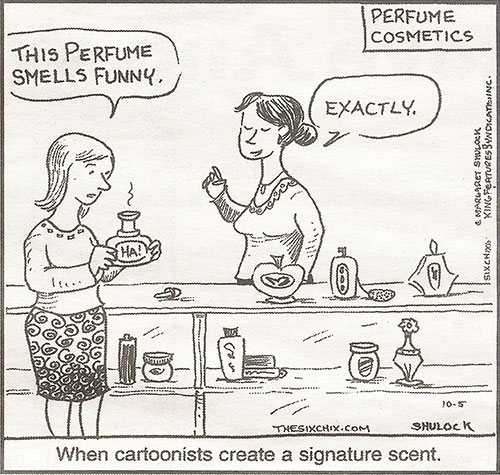Two More Reasons Pronouns Plague Us
|
|
For several weeks now, we've been counting the ways that pronouns give us nightmares. Today we'll look at two more culprits: infinitives and verbs that end in -ing (known technically as participles and gerunds).
To form an infinitive, precede a verb with the word to. The infinitive of look is to look. Constructions like to be looking, to have looked, and to have been looking are also infinitives.
Note what happens if we paraphrase I believe he is honest, using an infinitive: I believe him to be honest. The presence of the infinitive (to be) turns he (the subject of is) into him (the object of believe).
If we change the statement to a question, should we use who or whom? The rule of thumb we discussed when this series began in late August is who = they (subject) and whom = them (object). So it would be correct to say Who do you believe is honest? (Who is honest, do you believe?)
But with an infinitive, Whom do you believe to be honest? would be correct. (Do you believe them to be honest?)
The situation is similar with verbs ending in -ing. There are times when an -ing verb in a sentence lets you say the same thing with either a subject pronoun or an object pronoun. For instance, you could say We recall she was driving home or We recall her driving home.
Again, converting those statements to who-or-whom questions poses a challenge. Who do you recall was driving home? would be correct. (Who was driving home, do you recall?) And Whom do you recall driving home? would also be correct. (Do you recall her driving home?)
Such fine distinctions further illustrate why certain everyday pronouns are endlessly confounding.
To be continued…
|
View and comment on this
article on our website.
|
|
Pop Quiz
Find the grammatically correct pronouns.
1. I discovered they/them and Al sleeping in the barn.
2. I discovered they/them and Al were sleeping in the barn.
3. Mary trusted we/us and the team would return her car.
4. Mary trusted we/us and the team to return her car.
5. Who/whom do you predict to win the match?
6. Who/whom do you predict will win the match?
|
Free BONUS Quiz for You!
[[firstname]], because you are a subscriber to the newsletter, you get access to one of the Subscribers-Only Quizzes. Click here to take a Who, Whom, Whoever, Whomever Quiz and get your scores and explanations instantly!
We will be adding many more quizzes this year to our already substantial list of quizzes. If you have suggestions for topics we have not yet covered, please send us a message at help@grammarbook.com.
|
Hundreds of Additional Quizzes
at Your Fingertips
Subscribe now to receive hundreds of additional English usage quizzes not found anywhere else!
Teachers and Employers
Save hours of valuable time! You may assign quizzes to your students and employees and have their scores tallied, organized, and reported to you! Let GrammarBook.com take the hassle out of teaching English!
"Fun to test my skills."
"The explanations really help ... thanks!"
"I can select the quizzes to assign to my students, and then the results are reported to me automatically!"
|

|
Don't need all the quizzes?
You can now purchase the same quizzes individually for ONLY 99¢ each.
Purchase yours here. |
If you think you have found an error in a quiz, please email us at help@grammarbook.com
|
 |
The Blue Book of Grammar and Punctuation
by Jane Straus, Lester Kaufman, and Tom Stern |
The Authority on English Grammar! Eleventh Edition Now Available
An indispensable tool for busy professionals, teachers, students, homeschool families, editors, writers, and proofreaders.
Available in print AND as an e-Book! Over 2,000 copies are purchased every month!
The publisher of The Blue Book, Jossey-Bass, A Wiley brand, is offering a 35 percent discount for those of you who order the book through Wiley.com. Shipping and tax are not included. Simply go to bit.ly/1996hkA and use discount code E9X4A.
Offer expires December 31, 2020.
|
Wordplay

Pop Quiz Answers
1. I discovered them and Al sleeping in the barn.
2. I discovered they and Al were sleeping in the barn.
3. Mary trusted we and the team would return her car.
4. Mary trusted us and the team to return her car.
5. Whom do you predict to win the match?
6. Who do you predict will win the match?
|
 |
English In A Snap:
68 One-Minute English Usage Videos FREE |
Learn all about who and whom, affect and effect, subjects and verbs, adjectives and adverbs, commas, semicolons, quotation marks, and much more by just sitting back and enjoying these easy-to-follow lessons. Tell your colleagues (and boss), children, teachers, and friends. Click here to watch.
|
|





